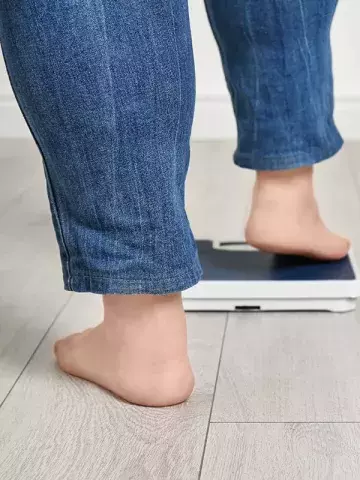Tirzepatide confers meaningful weight loss in adults with type 2 diabetes
By Rebecca Jenkins
Weekly injections of the type 2 diabetes medication tirzepatide provide a clinically meaningful reduction in bodyweight in adults with obesity and type 2 diabetes, research finds.
Tirzepatide, a subcutaneous glucose-dependent insulinotropic polypeptide (GIP) and glucagon-like peptide-1 (GLP-1) receptor agonist, is currently approved in Australia for treating type 2 diabetes and is in development for chronic weight management.
In the industry-sponsored, placebo-controlled, multicentre SURMOUNT-2 trial, researchers assessed the drug’s efficacy and safety for weight management in 938 adults living with obesity and type 2 diabetes.
The participants, who were aged 18 years or over with a BMI of 27kg/m2 or higher and an HbA1c of 7 to 10%, were randomly assigned to once-weekly treatment with tirzepatide 10mg, tirzepatide 15mg or matching placebo, in addition to a lifestyle intervention.
Over 72 weeks, treatment with tirzepatide 10mg and tirzepatide 15 mg once weekly resulted in clinically meaningful reductions in bodyweight of 12.8% and 14.7%, respectively, versus 3.2% with placebo, the researchers wrote in The Lancet.
‘Most participants (79 to 83%) treated with tirzepatide reached the benchmark for clinically meaningful effect (≥5% weight reduction), with up to nearly half reaching 15% or higher and up to almost one-third reaching 20% or higher weight reduction,’ they wrote.
Nearly half of the participants treated with tirzepatide reached normoglycaemia (HbA1c less than 5.7%) versus 3% treated with placebo.
The most frequent adverse events with tirzepatide were mild-to-moderate gastrointestinal-related effects, including nausea, diarrhoea and vomiting, with few events leading to treatment discontinuation (fewer than 5%).
Associate Professor Priya Sumithran, Head of the Obesity and Metabolic Medicine Group at Monash University in Melbourne, said the study supported the value of treating obesity effectively in people with type 2 diabetes and obesity.
‘Apart from weight loss and improvements in glycaemic control, SURMOUNT-2 showed that tirzepatide treatment led to improvements in blood pressure, cholesterol and physical function compared to lifestyle intervention alone, with no unexpected adverse effects,’ she told Medicine Today.
The weight loss in this trial was around two to three times greater than for any previous trial of obesity management medication in people with type 2 diabetes, she added.
‘This is a new class of medication, so more information about long-term therapeutic and adverse effects will need to be collected over time,’ she said, noting it was important to know more about its effects on body composition during weight loss.
Professor Sumithran said although not yet available in Australia, tirzepatide was TGA-approved for type 2 diabetes and was expected to soon be submitted for regulatory evaluation overseas as an obesity treatment.
Lancet 2023; https://doi.org/10.1016/S0140-6736(23)01200-X.
Image © New Africa/shutterstock.com


